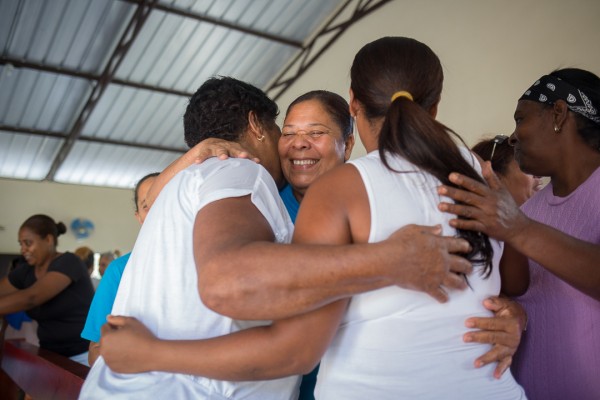
In the Catholic Church it is traditional to encourage people to make some special sacrifice during the season of Lent, this time that we started this week with the celebration of Ash Wednesday. There are those who decide that while Lent lasts they will give up sweets, or smoking, or alcohol. It reminds me of the sacrifices my mother made when she was little: she put stones in her shoes and tied a tight rope around her the waist, things like that. I don't know how long it would last, certainly not long, and that perhaps these were girlish things, but when she told me about it, I didn't quite understand the notion of sacrifice that these practices entailed. As a teenager, I decided that this was not for me, that God was not asking me to perform these sacrifices.
Sacrifice is a ritual, and as such it has its content and its spirituality, and although in my adolescent rebellion I did not see it, rituals are part of life, more useful and valuable for some than for others. As a friend used to say, making a Lenten effort of self-discipline, even in eating or drinking, is not bad, since it shows that you can exercise your will over your body.
Another friend shared the reflection that the liturgical cycles of the Church are not always lived in the year, but that our lives have stages of each cycle: stages of sacrifice, reflection, containment, such as Lent, stages of sadness and mourning, like Good Friday, and stages of new life and joy like Easter Sunday. It is also true that, with the pandemic, we are living a long period of moderation in many ways, of containment, sadness, and pain. So, there is sacrifice, like it or not!
This year, in the days leading up to Lent, I was planning to carry out a double purpose, my personal “sacrifice”, and I share it with you.
On the one hand, I have decided that when I start a dialogue about politics, or religion, or economics, from the beginning I should be willing to learn what another person can teach me; be willing to modify my opinion, or even change it. That would be a real dialogue. Because if I come to the dialogue with all my firm and immovable ideas, what dialogue will that be? Recently the bishop of Madison, Donald J. Hying, sent a letter to all the priests of his diocese warning of the disunity and polarization that exists today in the Catholic Church in the USA. It would seem that now there are "Trump Catholics" and "Biden Catholics," Hying says. In his letter he states that any moderate opinion and any attempt to reach an intermediate position is now seen as a betrayal of the truth. “The painful experience of these past months tells me that we as fallen human beings can become divisively tribal. We instinctively associate with the people who think, act, and live as we do. ” Along these lines, I repeat the first purpose: to start any dialogue with a sincere attitude of openness to the other, being willing to change your mind, to understand, to empathize with other points of view.
On the other hand, I have a similar purpose, but more in line with judging people -rather than their opinions. In daily interactions with others, we find a thousand reasons to judge negatively not only an idea or a political position, but an action, a feeling, an emotion. My proposal for this Lent is to generate empathy looking for a virtue, something positive, in all those with whom I interact. Every time a negative judgment about someone assails me, I will search until I find a virtue, a gift, a quality, an ability that that person has and is worthy of praise or even imitation. Thus, my judgments (although I know that, in fact, I should not judge at all) will be more balanced and empathetic with the other person.
In conclusion, my two-fold purpose for this Lent is to build bridges of union with others: bridges between my opinions and those of the other people, and bridges of empathy with the feelings and actions of others, thus balancing the possible negative judgments with the positive ones. Piece of cake, right? Have a great Lent!









